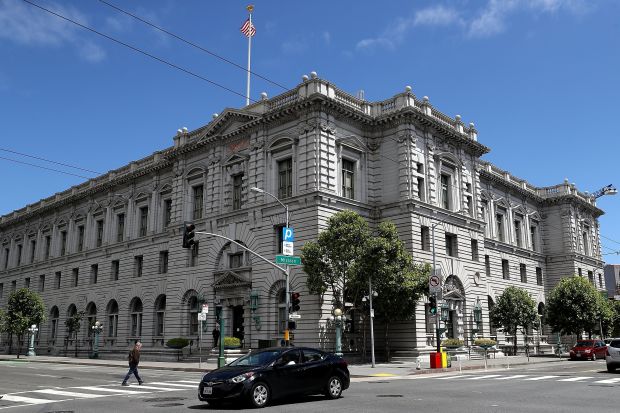
A divided Ninth Circuit panel last week granted the federal government’s request to pause U.S. District Judge Jon S. Tigar's July 25 court order vacating the Biden administration’s rule restricting asylum eligibility, titled Circumventing Lawful Pathways (aka the CLAP rule). While the two-judge majority provided no analysis to explain their conclusion that the government made the requisite “strong showing” that it was likely to succeed in its defense of the rule in the Ninth Circuit, the dissenting judge strongly criticized the majority’s decision, saying that “the Biden administration’s [rule] … is not meaningfully different from the [Trump] administration’s rules that were backhanded by my two colleagues.”
According to the order, the majority paused the district court’s vacatur while the federal government appeals Judge Tigar’s ruling. The panel set the case on an expedited schedule, with the opening brief due later this month.
In his dissent, Judge Lawrence VanDyke emphasized the role that his colleagues, Judges William A. Fletcher and Richard A. Paez, played in setting the Ninth Circuit’s conflicting precedent. “Only a few years ago, these same colleagues affirmed the same district judge enjoining the Trump administration’s rule restricting asylum eligibility for immigrants who entered the United States outside a designated port of entry.…They did so in a published, precedential opinion, undeterred by a chorus of dissenting colleagues,” Judge VanDyke wrote. “My colleagues, who made all that precedent, should not be able to now just elide it. It’s hard to shake the impression that something other than the law is at work here.”
The challenge to the Biden administration’s asylum rule is a continuation of litigation that began in November 2018 as a challenge to similar (albeit stronger) asylum restrictions imposed by the Trump administration. At that time, plaintiffs filed suit to challenge an interim final rule, Aliens Subject to a Bar on Entry Under Certain Presidential Proclamations; Procedures for Protection Claims and accompanying presidential proclamation which together barred asylum eligibility for aliens who entered the United States outside designated ports of entry. The same court enjoined this policy and the Ninth Circuit subsequently ruled that the policy was substantively invalid.
In 2019, the Trump administration issued an interim final rule (IFR), which bore even closer resemblance to the Biden administration’s policy at issue. The 2019 IFR was titled Asylum Eligibility and Procedural Modifications and restricted asylum eligibility from illegal border crossers who had either not applied for and been denied asylum or other protection in at least one country en route to the United States (if any one such country was a party to one of three relevant international treaties) or not qualified as victims of human trafficking.
This rule was also enjoined by this district court and ultimately invalidated by the Ninth Circuit on appeal. The Trump administration provided similar rationale for the need to implement this policy as the Biden administration did in 2023: to alleviate the mass illegal immigration crisis along the Southern border by discouraging the submission of fraudulent or otherwise meritless asylum claims.
Judge VanDyke wrote the he believes a stay is correct, but isn't permitted by the “mess we've made of our immigration precedent.” He added that he would “love to join” his colleagues in staying Judge Tigar’s ruling, “But unlike my colleagues, I cannot so easily ignore our circuit’s binding precedent. And that is particularly true given the demanding standard the government faces in asking us for a stay.”
Judge Tigar, relying on the earlier Ninth Circuit precedent set under the Trump administration, concluded in his July 25 decision that the Biden administration’s asylum rule was unlawful because, in his view, the policy impermissibly conditioned asylum eligibility on an alien’s manner of entry into the United States. He also ruled, as he did on the Trump administration’s rules, that the U.S. government could not lawfully impose additional limitations or conditions on asylum eligibility on aliens who did not apply for or were granted asylum in a transit country unless there was a determination that such country was in fact safe for that alien. Judge Tigar wrote, “To justify limiting eligibility for asylum based on the expansion of other means of entry or protection is to consider factors Congress did not intend to affect such eligibility. The Rule is therefore arbitrary and capricious.”
Accordingly, in the August 3 order, Judge VanDyke explained that, “And we (and Judge Tigar) are unfortunately obligated to follow that precedent—whether we now like it or not—until it is corrected by either our en banc court or the Supreme Court.” In order to receive a stay on Judge Tigar’s July 25 ruling, the federal government must have made a strong showing that, “applying our court’s caselaw, it ‘is likely to succeed on the merits.’ That simply is not possible under the sweeping rationales this court applied in our still-steaming cases terminating the Trump administration’s immigration rules.” (Citations omitted.)
